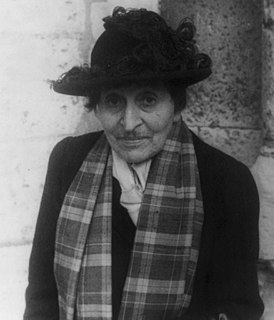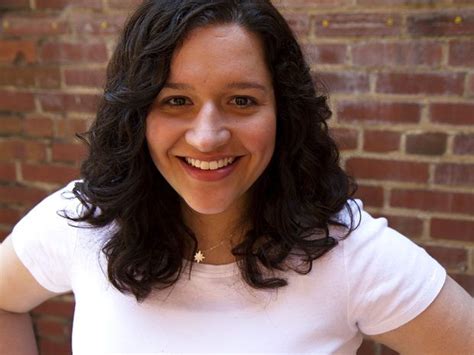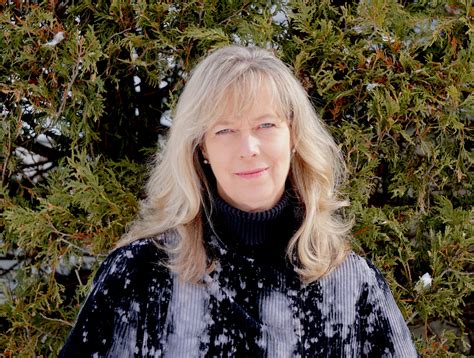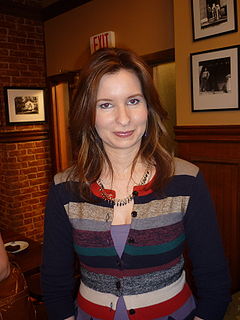A Quote by Alice B. Toklas
The first gathering of salads, radishes and herbs made me feel like a mother about her baby - how could anything so beautiful be mine?
Related Quotes
The first gatherings of the garden in May of salads, radishes and herbs made me feel like a mother about her baby - how could anything so beautiful be mine. And this emotion of wonder filled me for each vegetable as it was gathered every year. There is nothing that is comparable to it, as satisfactory or as thrilling, as gathering the vegetables one has grown.
I tried to breathe, failing. I clutched her to me, tears slipping from under my closed eyes. It was as if her soul was liquid fire and I could feel her aura, swirling about mine. She was taking my aura. But I wanted to give it to her, to cat her in a small part of me and protect her. Her needs made her so fragile.
Maxon lowered his lips to mine and gave me the faintest whisper of a kiss. Something about the tentativeness of it made me feel beautiful. Without a word, I could understand how excited he was to have this moment, but then afraid at the same time. And deeper than any of that, I sensed that he adored me. So this is what it felt like to be a lady.
Her [Eleanor Roosevelt] father was the love of her life. Her father always made her feel wanted, made her feel loved, where her mother made her feel, you know, unloved, judged harshly, never up to par. And she was her father's favorite, and her mother's unfavorite. So her father was the man that she went to for comfort in her imaginings.
Traveling is the great true love of my life... I am loyal and constant in my love of travel. I feel about travel the way a happy new mother feels about her impossible, colicky, restless newborn baby - I just don't care what it puts me through. Because I adore it. Because it's mine. Because it looks exactly like me.
If I were hanged on the highest hill, Mother o’ mine, O mother o’ mine! I know whose love would follow me still, Mother o’ mine, O mother o’ mine! If I were drowned in the deepest sea, Mother o’ mine, O mother o’ mine! I know whose tears would come down to me, Mother o’ mine, O mother o’ mine! If I were damned of body and soul, I know whose prayers would make me whole, Mother o’ mine, O mother o’ mine!
I think of the chimp, the one with the talking hands. In the course of the experiment, that chimp had a baby. Imagine how her trainers must have thrilled when the mother, without prompting, began to sign her newborn. Baby, drink milk. Baby, play ball. And when the baby died, the mother stood over the body, her wrinkled hands moving with animal grace, forming again and again the words: Baby, come hug, Baby come hug, fluent now in the language of grief.
I love my family but my family - they're the type of people that never let you forget anything you ever did... I was in the first grade Christmas play - I'm playing Mary. Now, during the course of the play, I dropped the baby Jesus... They still talk about this. I go to my family reunion, and one of my cousins just had a baby. So I'm like, 'Oh, that's a cute little baby. Let me hold the baby...' And my aunt runs over, 'Don't you give her that baby! You know she dropped the baby Jesus!'
The whole entire album is about Cry Baby, you know, being super insecure and kind of like going through her emotions until she finally realizes that she's comfortable with how crazy and insane she is and I think that I've made the exact same kind of progression , and the growth...and I don't know, like I feel like I've definitely grown into who I am and, like, I think Cry Baby is just me.
One thing I did have under my belt was, my mother lost her mother when she was 11. She mourned her mother her whole life and made my grandmother seem present even though I never met her. I couldn't imagine how my mom could go on but she did, she took care of us, she worked two jobs and had four children. She was such a good example of how to conduct oneself in a time of grief. When I lost my husband, I tried to model myself as much as I could on her.
I talked to my mother about it a lot. I asked her what it was like to grow up in New York and Harlem in the 1920s and 1930s, and I asked her about a woman leaving her husband. I asked her about how she would feel about that woman, and my mother grew up in the Church Of God In Christ, and she told me that the woman might be isolated because the other women thought she might go and come after their husbands. That's how they thought then.
A baby was a fact. It was a being with a mind and a nature, and you could feel about it any way you liked, but a baby wouldn't care. Just by existing, it demanded that you believe in a future: the future it would crawl in, walk in, live in. A baby was a piece of time; it was a promise you made that the world made back to you.



































